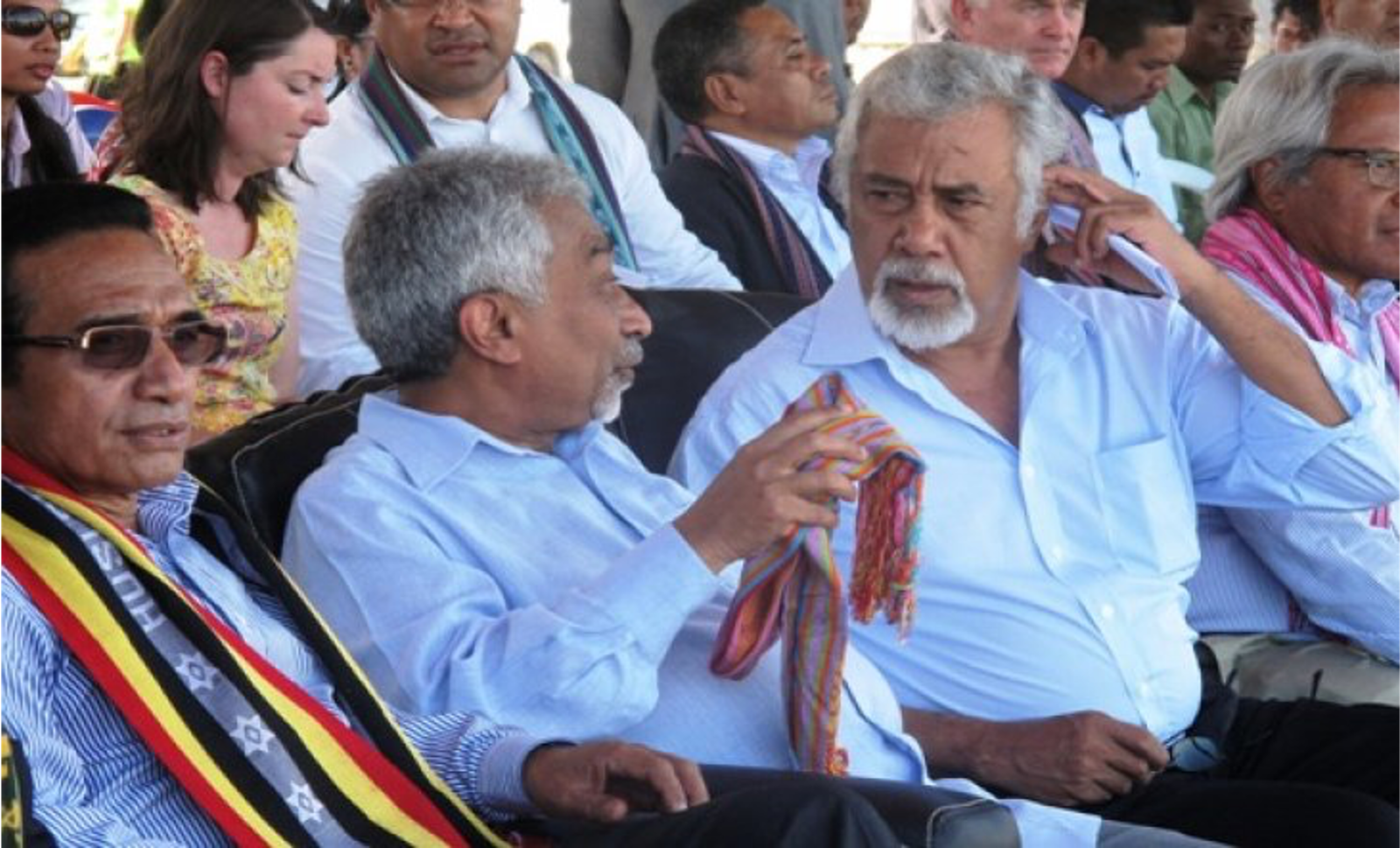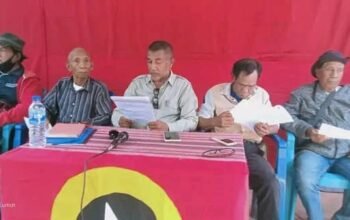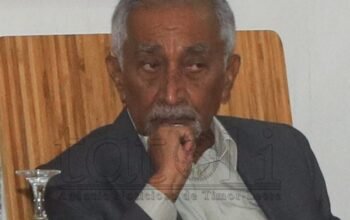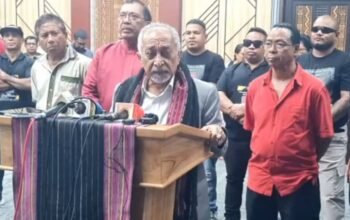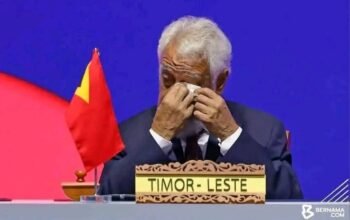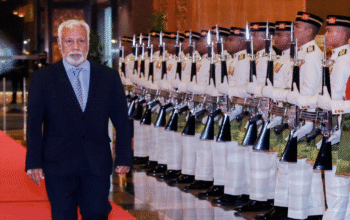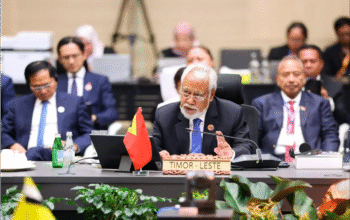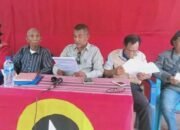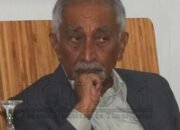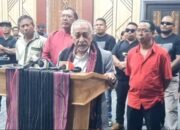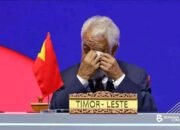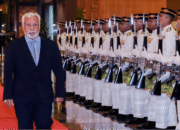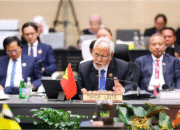NOTÍSIA LITERÁRIA, (LIBERDADETL.com) — The independence of Timor-Leste is the result of a long struggle, sacrifices, and dedication by the nation’s founding fathers, who strengthened unity for the ideal of freedom.
Throughout this historical journey, national figures such as Xanana Gusmão, Mari Alkatiri, Taur Matan Ruak, Ramos Horta, Lere Anan Timur, Francisco Guterres Lu-Olo, and other fighters have become symbols of sacrifice and the direction of the struggle.
They not only led but also reinforced their commitment to maintaining unity amidst external threats and internal challenges.
This introduction serves as a reminder to the younger generation that division and shallow politics can erode the foundations of the nation.
Awareness of the importance of respecting history and the contributions of national leaders is a moral responsibility for every citizen.
Media, society, and future generations have a strategic role in strengthening unity and supporting national development rather than creating conflicts that could weaken the country.
Through this narrative, it is hoped that readers, especially the younger generation, will understand that respecting the struggles of the founding fathers is not merely rhetoric but a concrete step to safeguard the integrity and continuity of Timor-Leste’s independence.
Timor-Leste’s independence is the result of a long struggle by national leaders who made history through selfless sacrifice and dedication.
Figures such as Xanana Gusmão, Mari Alkatiri, Taur Matan Ruak, Ramos Horta, Lere Anan Timur, and Francisco Guterres Lu-Olo were not just political leaders but pathfinders for the nation’s liberation.
They united since the war, affirming their commitment to building an independent and sovereign state.
However, new challenges arise from the younger generation, which in modern political dynamics sometimes exhibits tendencies to divide.
This phenomenon not only poses risks to national unity but may also trigger instability that undermines development efforts.
A local resident, Filomeno Marques, expressed his views to Media LIBERDADETL in Tasitolu, Dili, on Wednesday, August 20, 2025.
He emphasized, “When the new generation attempts to divide national leaders, we are essentially seeking trouble. They have been united since the war and upheld their commitment to the country.”
Filomeno added that testing the nationalism of the younger generation through shallow politics can cause disorientation.
He warned, “Young people must be careful, because shared suffering during the struggle should serve as a foundation for unity, not a tool for division.”
Academic Martinho Maia highlighted the role of media in this context. He noted that inaccurate or sensational information could damage relationships among national leaders and disrupt national stability.
“Media must remain neutral and present facts objectively. Popularity sought through divisive news will harm the nation in the future,” he said.
Maia added that media contributions to national development should reflect integrity and social responsibility.
Estevão Sarmento, a resident of Ermera Municipality who attended the 50th anniversary of FALINTIL in Tasitolu, emphasized the importance of unity among all citizens.
According to him, supporting national leaders’ policies is a concrete expression of patriotism.
“If leaders’ policies do not align with our interests, the younger generation should approach and understand them, not attempt to divide,” he stated.
He also stressed that media plays a strategic role in supporting the development process rather than creating division.
This narrative underscores that any action or intent that undermines national unity, especially influenced by material or narrow political interests, will have negative impacts on future generations.
Poor land, citizens facing poverty, widows, orphans, and the suffering resulting from a long history of colonization demand collective responsibility to maintain unity.
This awareness forms the essential foundation for Timor-Leste to preserve its independence and achieve sustainable development.
Recommendations
Based on observations and statements from academics and interviewed citizens, several strategic steps are necessary to maintain national unity and strengthen the role of the younger generation:
- Strengthening Education in History and Nationalism: Formal and non-formal educational curricula should emphasize the history of the independence struggle and the contributions of the founding fathers.
This understanding will cultivate respect and awareness among young people of the importance of unity.
- Neutral and Responsible Media: Print, electronic, and digital media must present factual and objective information.
Avoid reporting that could provoke conflict among leaders or incite social division. Media bears an ethical responsibility to support the development process and maintain national stability.
- Intergenerational Dialogue: The government, educational institutions, youth organizations, and community leaders should initiate communication forums between older and younger generations.
The goal is to build mutual understanding, bridge perspectives, and channel aspirations without compromising leadership integrity.
- Positive Participation of the Younger Generation: Young people are encouraged to actively contribute to social and economic development, prioritizing innovation and constructive engagement rather than political division.
Awareness of this responsibility forms the foundation for the sustainability of independence and sovereignty.
- Respect for National Leaders’ Policies: Citizens, particularly the younger generation, should approach leaders critically yet respectfully regarding decisions and policies made in the nation’s interest.
Constructive criticism should be framed within unity, not to generate conflict.
Media’s role and solutions
Media has a crucial responsibility in maintaining the unity and stability of Timor-Leste. Its role extends beyond reporting news to educating society about history, honoring the contributions of national leaders, and encouraging the younger generation to contribute positively to nation-building.
Media must prioritize presenting factual and accurate information so that society is not misled by provocative issues or false news that could trigger division.
Neutrality and journalistic ethics are fundamental. Content must remain free from political bias or personal interests, making media a bridge for education and reinforcing national awareness.
Furthermore, media can facilitate constructive dialogue among youth, community leaders, and national leaders. Professionally organized discussion forums and interviews will channel public aspirations without undermining leadership integrity.
Media can also implement campaigns promoting unity and nationalism. Articles, reports, and educational programs emphasizing the nation’s struggle and the contributions of its founders will foster respect and collective awareness among the younger generation.
Internal oversight, including mechanisms for clarifying and correcting news, ensures credibility and prevents the spread of divisive information.
Through these measures, media is not just an information conveyor but a pillar in strengthening national unity, honoring the struggles of the founding fathers, and guiding the younger generation to become responsible actors in development.
Responsible media will consolidate Timor-Leste’s independence and support sustainable development processes.
The unity of national leaders and the role of the younger generation form the cornerstone for the continued independence of Timor-Leste.
Honoring the struggle of the founding fathers is not merely a form of respect but also a moral responsibility for every citizen.
Media, society, and future generations have a strategic role in maintaining unity, disseminating accurate information, and fostering collective awareness.
With shared commitment, Timor-Leste can face political and social challenges without fragmentation, strengthen the development process, and ensure that independence achieved through sacrifice and blood remains intact and meaningful for all generations.
Unity and respect for history serve as the foundation for a future nation that is independent, just, and prosperous.

